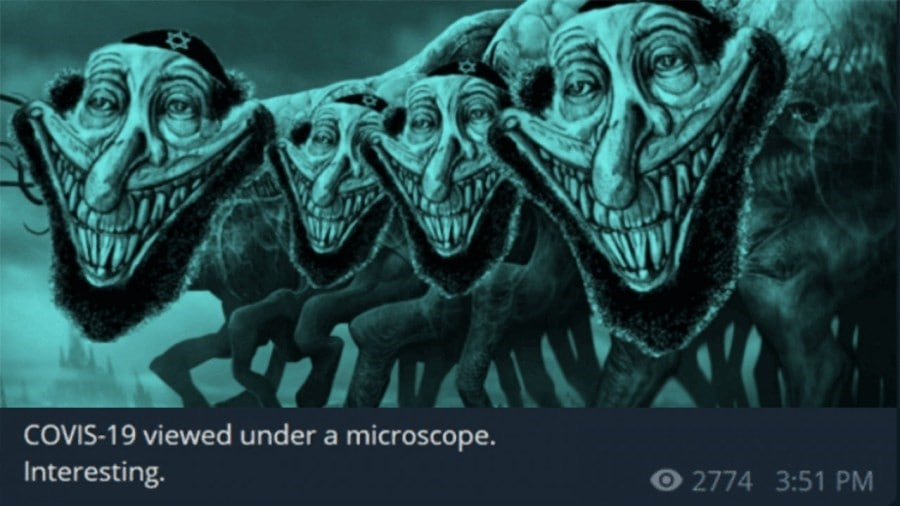TikTok has become a hotbed for anti-Semitism, a new study revealed, with an alarming 912% spike in anti-Semitic content shared on the popular video-sharing platform over the past year.
The study, led by Dr. Gabriel Weimann, a professor of communication at the University of Haifa, in conjunction with Natalie Masri, a research assistant at the IDC Herzliya’s Institute for Counter-Terrorism (ICT), discovered what they described as “a seismic increase” in anti-Semitic tropes, images and rhetoric compared to their 2020 study.
At the end of a four-month systematic content analysis of videos, comments and usernames on the platform, researchers found a 41% increase in anti-Semitic posts and a 1,375% uptick in usernames with anti-Semitic titles, such as @holocaustwasgood or @eviljews.
TikTok is one of the most rapidly growing social media platforms online and attracts mostly young people as 41% of its 1.2 billion users are aged 16–24. TikTok's popularity, exposure, and openness are taken advantage of by many extremist, racist, and radical groups including neo-Nazis and anti-Semites, the study notes.
“It may be easy to dismiss the platform as an innocuous forum for children who want to be creative, however, TikTok’s catering to young, impressionable and naive audiences, combined with bad-faith actors who are posting hateful content online, is something that should be taken very seriously,” stated Weimann.
Some examples of problematic content include a video featuring a succession of young users giving Nazi salutes; another video showing text that reads, “I have a solution; a final solution,” referring to the Holocaust; depictions of Jews with long, hooked noses; and many other hurtful images and texts dismissing the gravity of the Holocaust.
3 View gallery


An anti-Semitic caricature shared online depicting coronavirus as Jewish people with long, hooked noses
“These anecdotal findings suggest the need for an empirical, systematic, and objective study of TikTok’s use for anti-Semitic propaganda, incitement, and hate, the study suggested,” the researchers noted.
The content found “demonstrated explicit depictions” of anti-Semitism according to the International Holocaust Remembrance Alliance (IHRA) working definition of the term.
The study further raised concern that TikTok recently updated its terms of service in October 2020 ostensibly to thwart hateful content, but those measures have yet to yield the desired results.
A campaign by the social network to raise awareness about anti-Semitism by promoting educational videos on the issue during Holocaust Memorial Day has also backfired and attracted hateful messages from users.
3 View gallery


Anti-Semitic image shared online alleging a connection between Jews and coronavirus
(Photo: Screenshot)
A video by Jewish British television personality and barrister, Robert Rinder, for instance, was inundated with anti-Semitic sentiments alleging the Holocaust never happened at all or, if it did, the Jews deserved it.
“I am not sure they did enough in terms of monitoring and removing all hate speech,” Weimann said. “They certainly should apply their own terms of use and they’re failing to do so properly. Moreover, their algorithm just promotes hate by sending such messages to those who expressed interest, sending a user down a rabbit hole of hatred.”
The study concluded that the findings “come during growing calls for tighter and stiffer regulation of social media. TikTok claims on its homepage that it is ‘raw, real, and without boundaries.’ But the lack of boundaries combined with the growing success of this platform, make it an ideal virtual home for hate speech and extremist content.”
“The anti-Semitism elucidated by this important research must be stopped in its tracks. Social media sites, such as TikTok have a responsibility not to enable this spewing of hatred,” said Lisa Silverman, CEO of the American Society of the University of Haifa. “Dr. Weimann and Natalie Masri’s study provides both practical insights and a big-picture perspective, reflecting University of Haifa’s mission to use scientific research to combat the world’s greatest challenges.”


